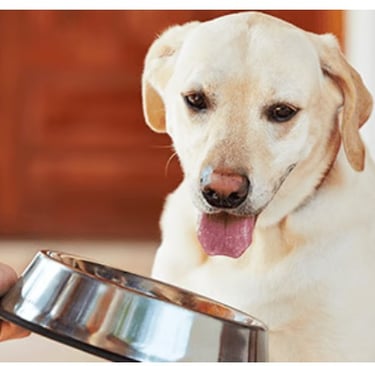Top 10 Best Dog Nutrition Choices for Health and Vitality in 2024
Discover the top 10 best dog nutrition options, including premium dry kibble and natural diets. Our expert guide helps you choose the right food for your dog's health, energy, and longevity, ensuring balanced nutrition for every stage of life.
DOG FOOD
9/3/20245 min read


top 10 best nutrition for dog
As a devoted dog owner, I've always wondered, "Am I really giving my furry friend the best nutrition possible?" 🤔 It's a question that kept me up at night, especially when I noticed my pup's lackluster coat and low energy levels. I knew something had to change, but the sea of conflicting information online left me feeling overwhelmed and confused.
That's when I decided to dive deep into the world of canine nutrition. After countless hours of research, consultations with veterinary experts, and a fair share of trial and error, I've uncovered the top 10 best nutrition choices for dogs. These game-changing insights have not only transformed my dog's health but also given me peace of mind as a pet parent. 🐶❤️
In this blog post, I'll share my journey and discoveries, covering everything from high-quality protein sources to essential vitamins and minerals. We'll explore the importance of hydration, natural supplements, and even touch on foods to avoid. Whether you're a new dog owner or a seasoned pet parent, get ready to revolutionize your furry friend's diet and watch them thrive like never before!
High-Quality Protein Sources for Dogs
High-Quality Protein Sources for Dogs
Ensuring your canine companion receives adequate protein is crucial for their overall health and well-being. Let's explore some of the best high-quality protein sources for dogs:
A. Lean meats (chicken, turkey, beef)
Lean meats are excellent protein sources for dogs, providing essential amino acids for muscle development and maintenance. Consider the following options:
Chicken: Low in fat, easy to digest
Turkey: Rich in nutrients, great for weight management
Beef: High in iron and B vitamins
B. Eggs as a complete protein source
Eggs are a nutritional powerhouse for dogs, offering a complete protein profile. Benefits include:
All essential amino acids
Easily digestible
Rich in vitamins and minerals
C. Fish rich in omega-3 fatty acids
Fish not only provides high-quality protein but also offers beneficial omega-3 fatty acids. Some excellent choices include:
Fish Type
Benefits
Salmon
High in EPA and DHA, supports skin and coat health
Sardines
Rich in calcium, promotes bone strength
Mackerel
Boosts immune system, aids in reducing inflammation
When incorporating these protein sources into your dog's diet, remember to consult with your veterinarian to determine the appropriate portions based on your dog's size, age, and activity level. A balanced diet with high-quality protein will contribute significantly to your furry friend's overall health and vitality.
Essential Carbohydrates for Energy
Essential Carbohydrates for Energy
Carbohydrates play a crucial role in providing energy for your canine companion. While dogs primarily need protein, incorporating the right carbs can contribute to a well-balanced diet. Let's explore some excellent carbohydrate sources for your furry friend.
A. Vegetables for fiber and nutrients
Vegetables are an excellent source of fiber and essential nutrients for dogs. They provide vital vitamins, minerals, and antioxidants while being low in calories. Here's a list of dog-friendly vegetables:
Carrots
Green beans
Broccoli
Spinach
Pumpkin
Cucumber
B. Sweet potatoes and pumpkin
Sweet potatoes and pumpkin are nutrient-dense carbohydrates that offer numerous benefits for dogs:
Vegetable
Benefits
Sweet potatoes
Rich in vitamins A, C, and B6; high in fiber; good source of beta-carotene
Pumpkin
High in fiber; aids digestion; packed with vitamins A and C
Both sweet potatoes and pumpkin can be cooked and mashed or pureed for easy consumption. They're excellent for dogs with sensitive stomachs or those needing a fiber boost.
C. Whole grains (brown rice, oatmeal)
Whole grains provide complex carbohydrates that offer sustained energy release. They're also rich in fiber, which aids digestion. Here are some whole grain options for dogs:
Brown rice: Easy to digest and gluten-free
Oatmeal: High in fiber and beneficial for heart health
Quinoa: Complete protein source with all essential amino acids
When incorporating these carbohydrates into your dog's diet, remember to introduce them gradually and in moderation. Every dog has unique nutritional needs, so it's always best to consult with your veterinarian before making significant changes to your pet's diet. Now that we've covered essential carbohydrates, let's move on to explore the importance of healthy fats for your dog's coat and skin health.
Healthy Fats for Coat and Skin Health
Healthy Fats for Coat and Skin Health
Incorporating healthy fats into your dog's diet is crucial for maintaining a glossy coat and healthy skin. Let's explore some excellent sources of beneficial fats for your canine companion.
A. Coconut Oil Benefits
Coconut oil is a versatile and beneficial fat for dogs. It's rich in medium-chain triglycerides (MCTs) that can:
Improve skin health and reduce allergies
Promote a shiny, healthy coat
Boost immune system function
Aid in digestion and nutrient absorption
To introduce coconut oil to your dog's diet, start with small amounts and gradually increase. A general guideline is 1 teaspoon per 10 pounds of body weight daily.
B. Flaxseed and Chia Seeds
These tiny seeds pack a powerful nutritional punch for your dog:
Seed Type
Benefits
Flaxseed
Rich in omega-3 fatty acids, fiber, and lignans
Chia Seeds
High in omega-3s, protein, and antioxidants
Both seeds can:
Improve coat shine and reduce skin inflammation
Support heart health
Aid in digestion
Grind the seeds before adding them to your dog's food for better nutrient absorption. Start with 1/4 teaspoon per 10 pounds of body weight daily.
C. Fish Oil Supplements
Fish oil is an excellent source of omega-3 fatty acids, particularly EPA and DHA. These essential fats offer numerous benefits:
Reduce inflammation in the skin and joints
Enhance cognitive function
Support heart and kidney health
Improve coat texture and shine
When choosing a fish oil supplement, opt for high-quality products specifically formulated for dogs. The dosage depends on your dog's size and health condition, so consult with your veterinarian for proper recommendations.
Now that we've covered the importance of healthy fats, let's explore the crucial vitamins and minerals that contribute to your dog's overall well-being.
Crucial Vitamins and Minerals
When it comes to proper nutrition for dogs, vitamins and minerals play a vital role in maintaining their overall health and well-being. Let's explore some of the most essential nutrients that should be included in your dog's diet.
A. Iron for Healthy Blood
Iron is crucial for your dog's blood health, as it helps in the production of hemoglobin. This protein is responsible for carrying oxygen throughout the body. Ensuring your dog gets enough iron can prevent anemia and boost their energy levels.
B. B-complex Vitamins for Metabolism
B-complex vitamins are essential for your dog's metabolism and overall health. They play a crucial role in various bodily functions, including:
Energy production
Nervous system function
Digestive health
Skin and coat maintenance
C. Calcium for Strong Bones and Teeth
Calcium is vital for maintaining strong bones and teeth in dogs. It also supports:
Muscle function
Blood clotting
Nerve signaling
To ensure your dog gets enough calcium, consider incorporating these foods into their diet:
Food Source
Calcium Content
Yogurt
High
Sardines
Moderate
Leafy greens
Moderate
Bone meal
Very high
D. Vitamin A for Eye Health
Vitamin A is crucial for maintaining your dog's eye health and supporting their immune system. It also contributes to:
Skin and coat health
Proper growth and development
Reproductive health
Now that we've covered these essential vitamins and minerals, let's explore the importance of hydration and electrolytes in your dog's diet.
About us
"SHOM PET CARE" with three years of dedicated experience
At Shom Pet Care, we understand the deep bond you share with your furry companions. With over three years of experience, our dedicated team is committed to providing the highest level of care for your pets. We treat each pet as if they were our own, ensuring a safe, loving environment that mirrors the comfort of home. Whether it's daily walks, playtime, or just some cuddles, we tailor our services to meet the unique needs of your beloved pet. Your peace of mind is our priority, and we strive to make every interaction a joyful one. Trust Shom Pet Care to keep your pets happy and healthy while you are away!
Connect Us:
8510859389, 8800802564
shomdogboarding@gmail.com
© Shom Pet Care, All rights reserved.
